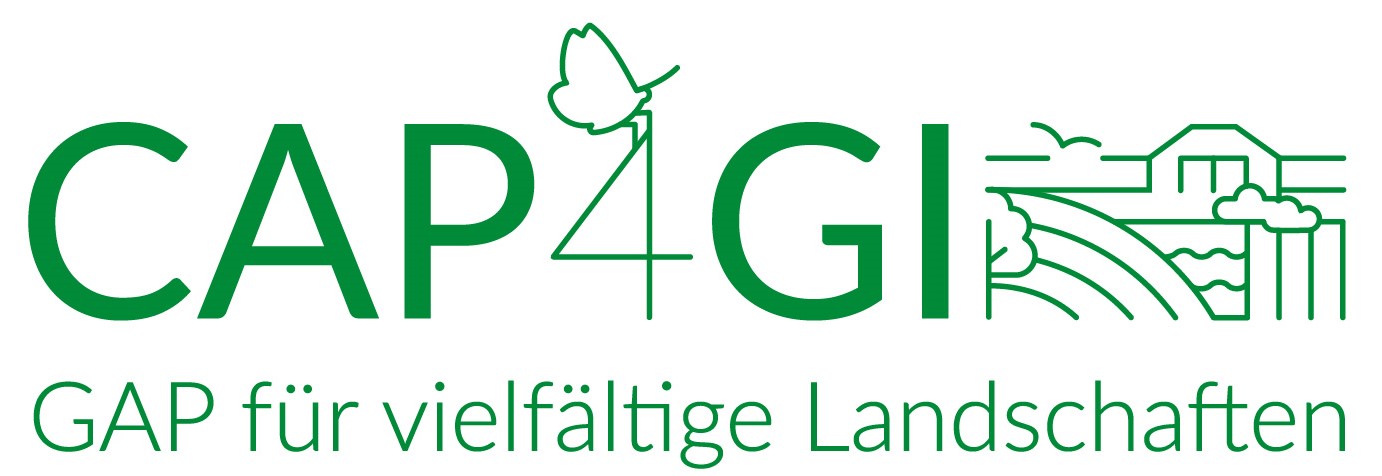
Policy Brief on results and policy recommendations from the exchange with farmers
| Date |
Date
|
May 14, 2024 – In a nutshell. The CAP4GI project is publishing a policy brief summarising the initial results of the exchange platforms with farmers and other stakeholders in Thuringia and Baden-Württemberg as well as policy recommendations based on these results.
The new policy brief ties in with current social and political developments: The agricultural protests in early 2024, in which farmers' dissatisfaction with (agricultural) policy was expressed, and the subsequent recent EU decisions in which the environmental requirements of the Common Agricultural Policy were sharply lowered in a fast-track procedure without any real democratic participation. The authors from the project team argue that such a reduction in environmental standards is counterproductive - both for biodiversity and for farms. Instead, the focus should be on how politics and society can help farmers to do more for biodiversity and how they can better benefit from environmental measures in the future. To this end, the targeted, simplified and income-generating rewarding of environmental services must be strengthened.
As a contribution to answering this question, the policy brief outlines the key barriers identified in dialogue with the participating farmers and their perspectives on possible solutions. The ‘insufficient remuneration for measures’, ‘excessive bureaucracy’ and ‘lack of flexibility of measures and a perceived high risk of sanctions’ were cited as central and consistent barriers. As many of the barriers mentioned by the participants have been known for a long time and have been sufficiently analysed, the political efforts to reduce the barriers to date are considered insufficient. In the discussions, the farmers favoured the idea of a public goods premium as a possible option for the further development of the CAP. Advice-based systems also met with a positive response. In contrast, collective models for the cross-farm implementation of agri-environmental measures received little approval.
Based on the discussions, the authors provide policy recommendations, together with some examples of concrete suggestions for improvement from the participants of the exchange platforms. In the current funding period, the authors recommend ‘increasing the budget for eco-schemes and Pillar 2 measures’, expanding the range of eco-schemes and introducing an ‘increasing bonus for the multi-annual implementation of measures’. In addition, the removal of obstacles in administrative practice must be tackled and access to information and advice improved.
The policy brief will be presented to members of the Parliament and representatives of the Federal Ministry of Food and Agriculture (BMEL) at a parliamentary event on 14 May 2024.
